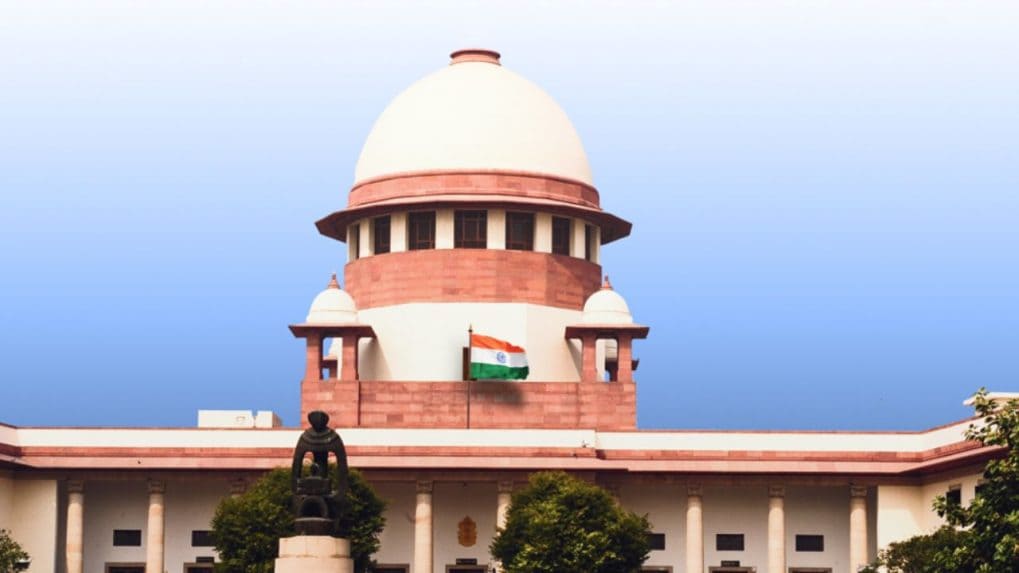Digital
Why OpenAI is hiring 100 ex-bankers: Inside the ChatGPT-maker's secret project to automate Wall Street's grunt work

The Supreme Court has upheld a Karnataka High Court order quashing an FIR against a Bengaluru-based recreation club operated by M/s DM Gaming Pvt Ltd, which hosted poker games. While dismissing the State’s plea, the top court refrained from deciding whether poker qualifies as a game of skill or chance, leaving the larger question of law open.
A Bench of Justices MM Sundresh and Satish Chandra Sharma observed: “We do not find any ground to interfere with the impugned order passed by the High Court. However, the question of law is left open. The Special Leave Petition is, accordingly, dismissed.”
The controversy began on June 5, 2024, when Bengaluru’s Golden Ace Poker Room, run by DM Gaming Pvt Ltd, was raided by the Central Crime Branch (CCB). Acting on a complaint that the club was operating as a gambling house under the guise of poker, the police registered a case under Sections 79, 80, and 103 of the Karnataka Police Act, which deal with gaming offences.
During the raid, officials seized ₹5.46 lakh in cash, poker chips, and playing cards, and arrested several individuals, including company director Mukesh V. Chawla. Authorities also alleged that non-members were present, tokens worth ₹3,000 were exchanged, and phone transactions revealed movement of large sums.
The State contended that the company’s model was designed to lure young men and students, operated beyond permissible hours, and was structured to generate illegal profits by encouraging gambling addiction.
The Karnataka High Court quashed the FIR, ruling that the allegations did not establish any unlawful gaming activity. It held that poker, like rummy, is primarily a game of skill and therefore outside the ambit of prohibited gambling under law.
In arriving at this conclusion, the High Court relied on its earlier rulings in Rohit Tiwari v. State of Karnataka and All India Gaming Federation v. State of Karnataka, as well as the Allahabad High Court’s decision in M/s DM Gaming v. State of UP, which recognised poker and rummy as skill-based games.
In the Rohit Tiwari case, the High Court had dismissed similar charges against another gaming club, holding that police reports merely described observations of people playing games with chips and cash, without proving unlawful gambling.
Challenging the High Court’s quashing order, the Karnataka government argued before the Supreme Court that poker is akin to Teen Patti, a game of chance, and therefore falls within the legal definition of gambling.
However, the apex court declined to interfere, effectively upholding the High Court’s ruling in favour of DM Gaming. Importantly, it clarified that the broader legal issue of whether poker is a game of skill or chance remains unresolved.
State of Karnataka was represented by Additional Advocate General Prateet Chadha and Advocate DL Chidananda. DM Gaming Pvt Ltd and others was represented by Advocates Azra Rehman, Rohit Sharma, Vanya Gupta, and Zakir Rehman.
In a different matter, the Supreme Court has scheduled October 7, 2025, to hear a batch of petitions challenging the Promotion and Regulation of Online Gaming Act, 2025, a law that crippled the real money gaming industry. The law bans all forms of games both skill and chance if played for stakes.
A bench comprising Justices J.B. Pardiwala and K.V. Vishwanathan will take up the petitions filed by gaming companies, including Head Digital Works, the parent company of real-money gaming platform A23, Clubboom 11 Sports and Entertainment Pvt. Ltd, Bagheera Carrom (OPC) Pvt and others. The apex court’s move follows weeks of legal uncertainty for online gaming operators, who argue that the new law is crippling the sector.
In a wide-ranging interview with Storyboard18, Sorrell delivers his frankest assessment yet of how the deal will redefine creativity, media, and talent across markets.